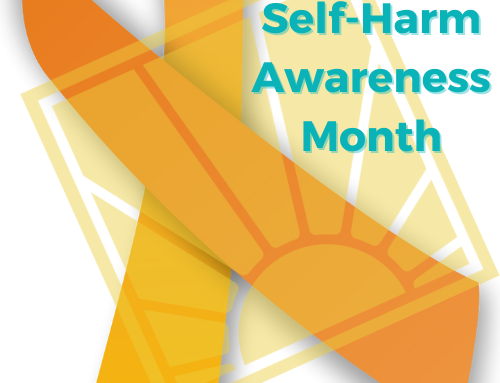Having a daughter that suffers from an eating disorder can be frightening, especially when it begins impacting her physical health. When you recognize that your daughter may be struggling with an eating disorder, you might feel at a loss of what to do. Understanding eating disorders, what your daughter is experiencing and how to help can be a struggle. Here are seven tips to help when you find yourself in this situation.
1: Remember, eating disorders are not about food or bodies
Eating disorders are coping mechanisms to help girls deal with pain and difficult emotions. Often at the core are feelings of being unacceptable and unlovable. It is important to address the underlying experiences and emotions that led to the eating disorder.
2: Get educated
Knowledge is power. Learning about eating disorders is a great way to help both yourself and your daughter. The book Life Without Ed by Jenni Schaefer gives you a good basis on what your daughter may be experiencing.
3. Don’t focus on the eating disorder
Trying to make your daughter eat may seem like a great idea and feel supportive. However, you may find yourself and your daughter in a power struggle. It is important for you to express your love and concern for her and not get drawn into an argument. Instead, focus on your daughter’s emotions. Remember, eating disorders are about pain, self-conflict and difficult emotions. It is important to remain objective. Create an emotionally safe environment for your daughter to share her feelings with you.
4. Get support
Having a daughter who struggles with an eating disorder can feel lonely, frightening, and at times, hopeless. It will be important for you to get support for yourself. That support can come from many different sources: friends, family, therapy, or a support group are some examples.
5. Be aware of the example you are setting for your daughter
It is important as parents to be an example to children, especially with positive body image. Model healthy eating and exercise habits. Be aware of your attitudes and behaviors in regards to food and body image. Instead of talking about diets and losing weight, talk about being healthy and eating right. It is important not to make negative remarks about body image in regards to you or anybody else.
6. Hold your ground when necessary
Eating disorders can be dangerous when it comes to your daughter’s physical health. Your daughter may be resistant to getting treatment and may argue that she doesn’t have a serious problem. You may have to hold a firm boundary with her. Just remember to frame it with love and concern for her well-being. It may not end well, but things will get better with time.
7. Practice Patience
Remember, your daughter’s eating disorder did not develop overnight and it will not get better overnight. Treatment will take time. It’s important to be patient with your daughter, the process, and yourself.
Resources for Parents
- National Eating Disorder Association (NEDA)
- International Association of Eating Disorder Professionals (IAEDP)
- Eating Disorder Hope
—
by Melyssa Myers, MFT, Therapist at Sunrise Residential Treatment Center
photo by Bradhoc

